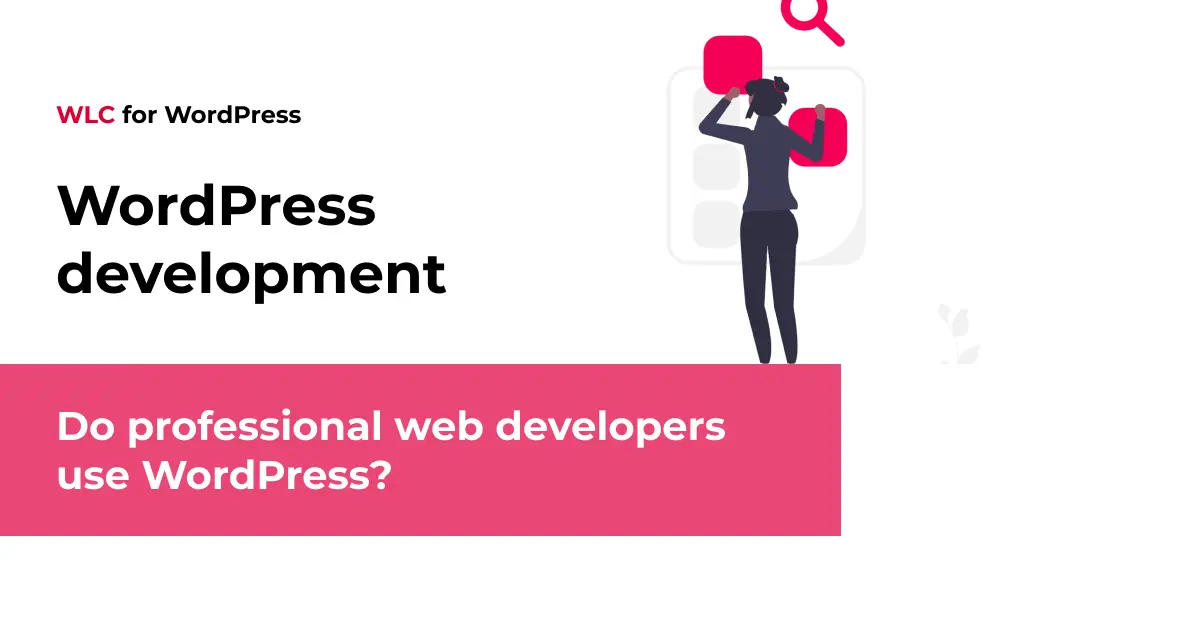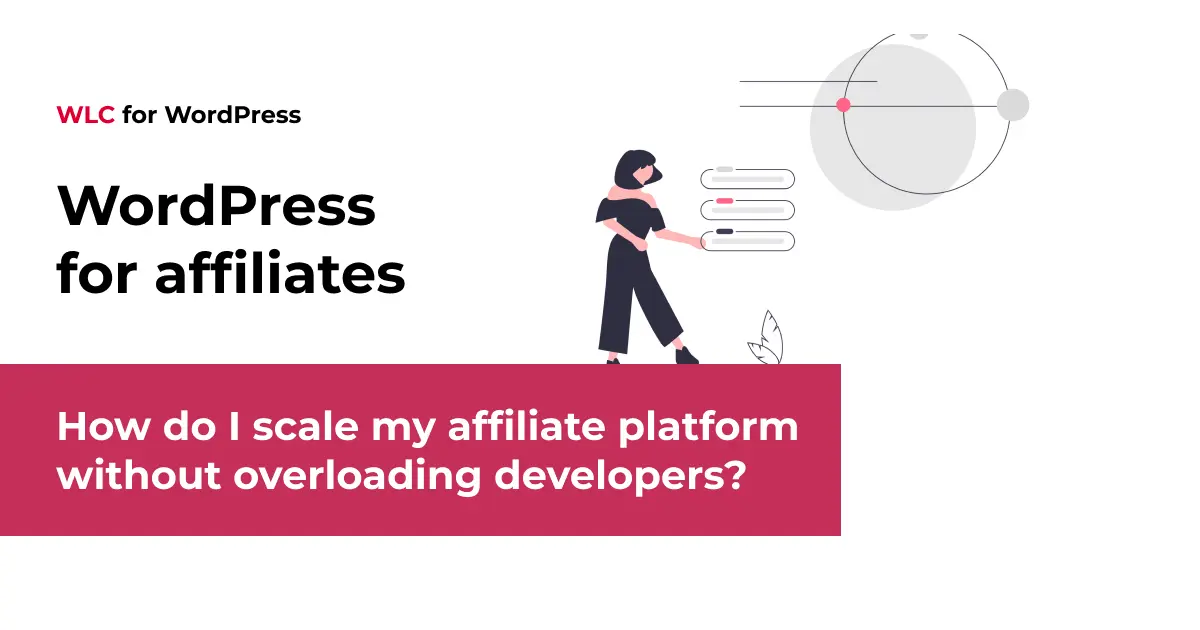Category: WordPress
Do professional web developers use WordPress?

Yes, professional web developers absolutely use WordPress, but not in the way most people imagine. Whilst amateur users rely on basic themes and plugins, professional developers leverage WordPress as a robust content management system and application framework to build custom WordPress websites and complex web applications for enterprise clients.
Understanding professional WordPress development in today’s market
The WordPress landscape has evolved dramatically over the past decade. What started as a simple blogging platform now powers over 40% of all websites on the internet, including major enterprise sites and complex web applications.
Professional developers have embraced WordPress not because it’s easy to use, but because it provides a solid foundation for building sophisticated digital solutions. The platform’s architecture allows developers to create everything from multilingual business websites to advanced e-commerce platforms and comprehensive e-learning systems.
Today’s professional WordPress development environment focuses on custom solutions rather than off-the-shelf themes. Developers use advanced frameworks, implement SCRUM methodologies, and follow enterprise-grade coding standards to deliver solutions that meet complex business requirements.
Do professional web developers actually use WordPress?
Absolutely, and they use it extensively for client projects ranging from small business websites to large-scale enterprise applications. Professional developers choose WordPress because it offers unmatched flexibility and extensibility when building custom solutions.
Seasoned developers leverage WordPress for creating sophisticated digital experiences including multi-vendor marketplaces, subscription-based services, and video streaming solutions. They’re not installing pre-made themes, they’re building custom applications that happen to use WordPress as the underlying framework.
The key difference lies in approach. Professional developers treat WordPress as a development platform rather than a website builder. They write custom PHP code, create bespoke plugins, and integrate complex third-party systems to deliver tailored solutions that match specific business needs.
What makes WordPress suitable for professional development projects?
WordPress offers several features that make it attractive to professional developers, particularly its extensibility through hooks and filters, robust API structure, and enterprise-grade security frameworks.
The platform’s modular architecture allows developers to extend functionality without modifying core files. This means custom features can be added safely and maintained easily over time. The extensive hook system provides developers with precise control over every aspect of the application’s behaviour.
Professional developers also appreciate WordPress’s built-in user management system, which can be extended to handle complex permission structures. The platform’s multisite functionality enables developers to manage multiple websites from a single installation, making it ideal for enterprise environments.
Performance optimisation capabilities are another crucial factor. Professional developers can implement advanced caching strategies, database optimisations, and content delivery networks to ensure WordPress sites perform at enterprise levels.
How do professional developers customise WordPress beyond basic themes?
Professional developers go far beyond theme customisation, implementing advanced techniques like custom post types, complex database operations, API integrations, and headless WordPress implementations.
WordPress custom development involves creating entirely bespoke functionality through custom plugins and advanced PHP programming. Developers build custom post types to handle specific content structures, implement complex taxonomies, and create custom fields that match unique business requirements.
Advanced developers often implement headless WordPress configurations, where WordPress serves as a content management backend whilst a separate frontend framework handles the user interface. This approach provides maximum flexibility and performance optimisation opportunities.
API integrations are another crucial aspect. Professional developers connect WordPress with ERP systems, CRM platforms, payment gateways, and third-party services to create comprehensive business solutions that extend far beyond traditional website functionality.
What is the difference between DIY WordPress and professional WordPress development?
The difference lies in code quality, security standards, performance optimisation, and long-term maintenance protocols. DIY WordPress typically involves installing themes and plugins, whilst professional development focuses on custom-built solutions.
Professional developers follow coding standards and best practices that ensure scalability and maintainability. They implement proper version control, write clean and documented code, and follow security protocols that protect against vulnerabilities.
Performance is another key differentiator. Professional developers optimise database queries, implement caching strategies, and ensure code efficiency. They also establish proper testing methodologies and deployment processes that minimise downtime and ensure reliability.
Maintenance protocols in professional development include regular security updates, performance monitoring, and proactive issue resolution. This contrasts with DIY approaches that often neglect these crucial aspects until problems arise.
Why do enterprise companies choose WordPress for their web development needs?
Enterprise companies choose WordPress for its scalability, robust content management capabilities, multisite functionality, and seamless integration possibilities with existing business systems.
The platform’s multisite network feature allows large organisations to manage multiple websites, departments, or regional sites from a single installation. This centralises management whilst maintaining flexibility for individual site requirements.
WordPress’s extensive API makes it ideal for integrating with enterprise systems like customer relationship management platforms, enterprise resource planning software, and marketing automation tools. This integration capability means WordPress can serve as the central hub for an organisation’s digital presence.
Content management capabilities are particularly appealing to enterprises that need to manage large amounts of content across multiple channels. WordPress’s user role system can be customised to match complex organisational structures and approval workflows.
How do professional WordPress developers ensure security and performance?
Professional developers implement comprehensive security hardening measures, performance optimisation strategies, rigorous code review processes, and systematic testing methodologies throughout the development lifecycle.
Security measures include implementing proper authentication protocols, sanitising all user inputs, using prepared statements for database queries, and regularly updating all components. Professional developers also implement security monitoring systems that detect and respond to potential threats automatically.
Performance optimisation involves multiple strategies including database query optimisation, image compression and lazy loading, content delivery network integration, and advanced caching implementations. Professional developers also monitor site performance continuously and make adjustments as needed.
Deployment strategies typically involve staging environments, automated testing, and gradual rollout procedures that minimise risk and ensure reliability. This systematic approach ensures that updates and new features don’t compromise site stability or performance.
White Label Coders helps companies worldwide turn WordPress into an enterprise‑grade platform. Our team delivers secure, scalable, and performance‑optimised solutions for e‑commerce, membership, and content‑heavy sites, integrating seamlessly with your business systems.
Key takeaways about professional WordPress development practices
Professional WordPress development represents a sophisticated approach to web development that leverages WordPress’s flexibility whilst maintaining enterprise-grade standards for security, performance, and scalability.
The key distinction lies in treating WordPress as a development framework rather than simply a content management system. Professional developers build custom solutions that happen to use WordPress as their foundation, rather than adapting WordPress themes to fit business requirements.
For businesses considering WordPress for their web development needs, it’s crucial to work with developers who understand advanced WordPress development techniques, follow proper coding standards, and implement comprehensive security and performance optimisation strategies.
When evaluating professional WordPress development services, look for teams that demonstrate expertise in custom plugin development, API integrations, performance optimisation, and enterprise-grade security implementations. The right development partner will treat your project as a unique solution rather than a template customisation exercise.
ooking for a professional WordPress development partner? Contact White Label Coders to discuss your next project.






